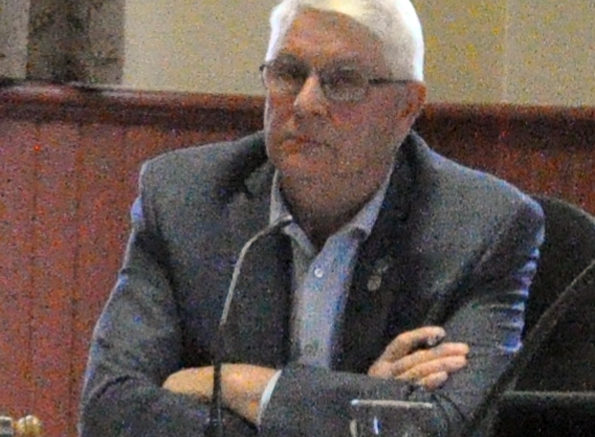Adam Bramburger
Beaver Staff
Knowing there was a high likelihood of appeal regardless of which way he voted Monday, Stone Mills Township reeve Eric Smith cast the deciding vote to turn down a zoning change for a temporary seasonal campground on Carroll Road.
Following a lengthy discussion, Smith sided with Doug Davison, Martha Embury, and Wenda LaLande to turn down a motion that would permit Freedom Fields Naturist Ranch owners Yvonne Gibson and Hector Gravelle their intended land use for a one-year period. The motion included stipulation that a development agreement include improved screening and setbacks, a reduction in the proposed number of camp sites, and an adherence to any legal information the township’s solicitor provided regarding Criminal Code of Canada provisions regarding nudity.
Smith told the Beaver he believed the rural area east of Tamworth was the “wrong spot” for the campground and stated there is “a lot of bad blood that’s not going to get any better.”
Freedom Fields had been operating a campground that did not conform to their rural designation since 2012. Last summer, a bylaw complaint triggered a process where the municipality told the owners they’d either have to cease operating or seek zoning changes. The proponents formally applied for a temporary change to a rural commercial designation last September to allow for a campground. The maximum duration for that change would have been three years, but with the township reviewing its official plan and zoning bylaw, the consideration was for a one-year term.
Mark Touw, a senior planner with IBI Group — the township’s planning consultant — told council his firm recommended maintaining a rural zone with an additional temporary use for the seasonal campground. They agreed with some concerns that the commercial designation would offer too broad a range of potential uses for the site and that would not fit with the township’s official plan.
Touw said the planners paid attention to neighbours’ concerns and through the planning process implemented restrictions on the campground’s operations in terms of scale and how many people are allowed on campsites. Its maximum would have been 35 sites and five cabins, with four people allowed on any given site.
He also said the recommendations called for setbacks of 100 metres from the front of the property and 30 metres from other property lines. Screening, including fencing a minimum of 1.8 m high or vegetation 3 m in depth and of the same height, would also be required. Additional proposed controls would require the proponents not use Kelly Road as an access point.
According to Touw, finding a suitable way to allow the land use was difficult because the tools planners have at their disposal are somewhat limited.
“There’s limitations on what can be applied through zoning and agreements. A big part is the enforcement of the bylaw,” he said. “The reality is that although council may be satisfied with these conditions or mitigation measures and the compatibility, there will — or may — be an ongoing commitment to manage how the uses operate and the potential for conflict.”
Touw noted that Freedom Fields and its neighbours were able to live with one another for several years prior to the heightening tensions since last summer and said that track record proves their land uses can co-exist.
He said he was wrestling with the question of how much obligation the municipality would have to monitor the campground’s operations and to respond to complaints and disputes.
“That’s a question we can’t answer through bylaws,” he said. “The easy answer is to not allow it as a way to avoid dealing with that. I think not allowing it is not necessarily the right thing from a planning perspective. It comes back to managing potential impacts.”
One major impact, he said, was something the planning process wasn’t designed to address and that’s public nudity. Councillor Kevin Richmond asked, then, what that meant in terms of adherence to the Criminal Code, which prohibits any nudity visible in public areas.
The township’s deputy clerk Roger Hogan said he’d contacted the township’s solicitor about what responsibility the municipality may have in that regard, but had yet to receive a formal response.
Deputy reeve John Wise said the issue kept cropping up and knowing there’s a riding stable that caters to children in the neighbourhood, he was concerned the proposed fencing wouldn’t provide adequate screening. He also wondered what was reasonable care.
“I think, as a municipality, we have to have clarity on this aspect of the question. From my understanding, it simply says you cannot be nude in public or on private property in view of a public space. I want to know, how far away does that apply?” Wise asked. “Assuming someone has 20/20 vision, would 100 feet from a boundary be sufficient? I don’t know. I don’t want to put the township in a position where we’ve granted approval to something that could potentially put someone in a Criminal Code violation.”

